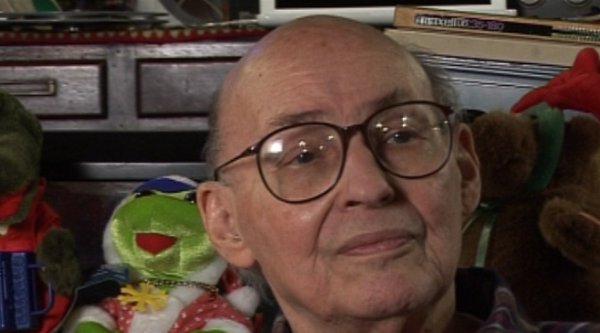NEXT STORY

My covert dating tactics
RELATED STORIES

NEXT STORY

My covert dating tactics
RELATED STORIES


|
Views | Duration | |
|---|---|---|---|
| 41. The frustration of teaching calculus at MIT | 1798 | 01:54 | |
| 42. Publishing Steps Toward Artificial Intelligence | 967 | 01:39 | |
| 43. Switching from teaching math to artificial intelligence | 1019 | 00:32 | |
| 44. The beauty of the Lisp language | 1 | 5160 | 02:05 |
| 45. The beginning of the artificial intelligence community | 1 | 1068 | 01:16 |
| 46. The fathers of Artificial Intelligence | 2 | 1177 | 02:08 |
| 47. My covert dating tactics | 1 | 1447 | 01:46 |
| 48. How things got done at the AI lab | 1075 | 00:57 | |
| 49. Setting up the AI lab with John McCarthy | 1129 | 02:00 | |
| 50. The great benefit of having a co-director | 865 | 02:21 |


Well, generally, me, McCarthy, Newell and Simon are the… were the best known figures in that, so there’s two pairs of people, which is interesting; there was a little rivalry, and what happened is that they actually had better models than we did for the first year or two. And then, I think mainly because of Simon’s interest, they started to get interested in showing that… that… with experiments on humans… that humans operated in accordance with some of their theories. And so Simon finally produced a big book called Human Problem Solving in which he had some programs to simulate solving certain kinds of problems, and he had tape recordings of people trained to talk aloud while they solved problems and this is a huge book that tries to prove that people work the way that program did.
And no one pays much attention to it anymore, because of course you can prove anything like that if you design the thing right and… he was sort… it was true that people did sort of use the same kind of search, but it didn’t hold up in details, and what happened is they got more and more interested in being psychologists, and eventually the quality of… I think actually their research was better than ours at first, because they were better at getting these programs to actually work, and then they leveled off by trying to prematurely say: This is a good solid cognitive theory.
Marvin Minsky (1927-2016) was one of the pioneers of the field of Artificial Intelligence, founding the MIT AI lab in 1970. He also made many contributions to the fields of mathematics, cognitive psychology, robotics, optics and computational linguistics. Since the 1950s, he had been attempting to define and explain human cognition, the ideas of which can be found in his two books, The Emotion Machine and The Society of Mind. His many inventions include the first confocal scanning microscope, the first neural network simulator (SNARC) and the first LOGO 'turtle'.
Title: The fathers of Artificial Intelligence
Listeners: Christopher Sykes
Christopher Sykes is a London-based television producer and director who has made a number of documentary films for BBC TV, Channel 4 and PBS.
Tags: Human Problem Solving, John McCarthy, Allen Newell, Herbert Simon
Duration: 2 minutes, 9 seconds
Date story recorded: 29-31 Jan 2011
Date story went live: 09 May 2011